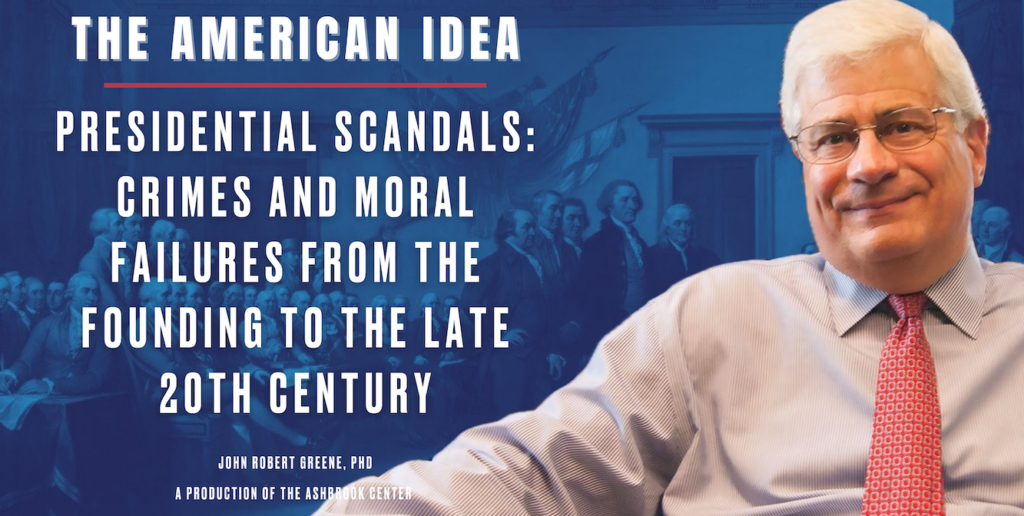Presidential Scandals: Crimes and Moral Failure from the Founding to Today
November 27, 2024

Listen and subscribe to the podcast
Join The American Idea’s Listener Email list – get news about upcoming episodes and a chance to offer questions for them, too!
Unfortunately, corruption scandals have plagued American presidential administrations since the nation’s founding. In this episode, Jeff discusses presidential scandals with historian Dr. John Robert Greene, who has identified what he calls four primary types of corruption: power, money, sex, and stupidity. The Truman administration exemplifies a mix of arrogance and power, with Truman tolerating corruption around him and enabling it by keeping corrupt individuals in positions of authority. Corruption has persisted throughout American history, with Grant’s indifference to corruption and Harding’s involvement in sex and money scandals being notable examples. Despite reform movements, corruption tends to follow a cyclical pattern, with periods of high corruption followed by calls for cleanup and government austerity. Roosevelt’s cover-ups of his health issues raise questions about the boundaries of corruption, particularly in cases of lying for personal or national security reasons. In the past, limited press access and the importance of physical presence for reporters allowed politicians to suppress scandals that we might find unacceptable today.
During the Truman administration, corruption flourished under the guise of Harry Vaughan, Truman’s close confidant. Despite Truman’s knowledge of Vaughan’s unethical dealings, he defended Vaughan against accusations and aided his corrupt practices. Vaughan’s actions, involving connections with the mob and illegal construction deals, went unchecked. The lack of a strong Chief of Staff and the absence of an open press environment enabled corruption to thrive. The need for a competent and ethical Chief of Staff, the importance of a free and open press, and the value of surrounding oneself with honest individuals were highlighted as crucial elements in preventing corruption.

